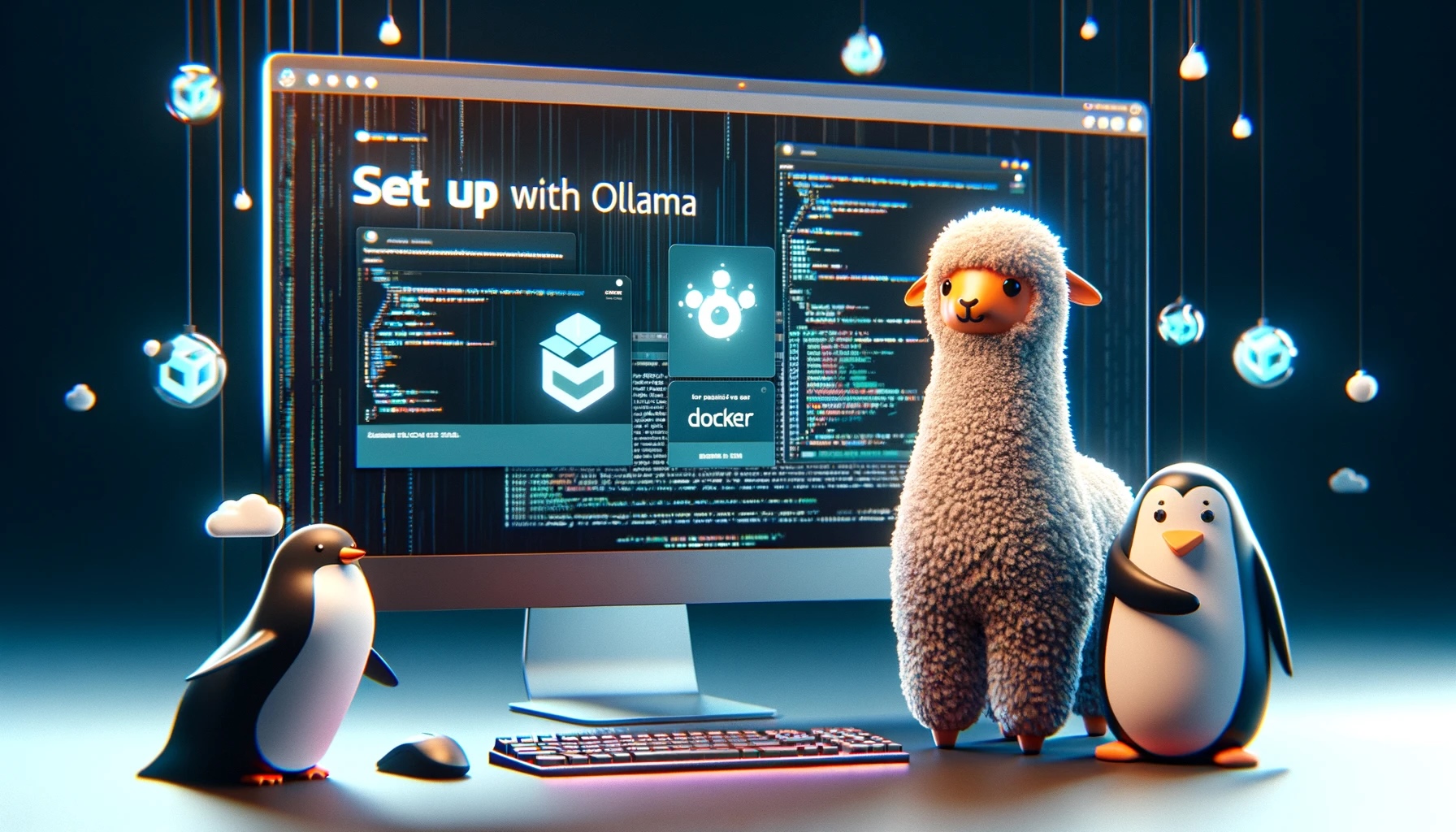Setting Up Ollama Web UI on Ubuntu Using Docker

Setting Up Ollama Web UI on Ubuntu Using Docker
Setting up Ollama Web UI on your Ubuntu server can significantly enhance your chat interface experience. This guide provides a detailed walkthrough, from installation prerequisites to Docker commands, ensuring you can follow along and set up your chat interface with ease.
Prerequisites
Before we dive into the installation, ensure you have Docker installed on your Ubuntu server. If not, follow these initial steps:
sudo apt-get update
sudo apt-get install docker-ce docker-ce-cli containerd.ioAfter the installation completes, you can verify that Docker is installed correctly by running:
docker --versionOptionally: You might also want to ensure that Docker starts automatically with your system
sudo systemctl enable dockerAnd to add your user to the Docker group so you can run Docker commands without sudo (replace your-user with your actual username):
sudo usermod -aG docker your-userNext make sure you have Ollama installed. If you’re on linux run:
curl -fsSL https://ollama.com/install.sh | shTo Update Ollama run that command again and it’ll replace the old Ollama.
Side note to uninstall Ollama run:
sudo systemctl stop ollama
sudo systemctl disable ollama
sudo rm /etc/systemd/system/ollama.serviceTo remove the downloaded models and Ollama service user and group:
sudo systemctl stop ollama
sudo systemctl disable ollama
sudo rm /etc/systemd/system/ollama.serviceTo Stop Ollama run:
sudo systemctl stop ollamaTo Start Ollama run:
ollama serveStep-by-Step Installation
- Download the Latest Ollama Web UI Docker Image.
docker pull ghcr.io/ollama-webui/ollama-webui:main- Run the Ollama Web UI Docker Image.
docker run -d --network=host -v ollama-webui:/app/backend/data -e OLLAMA_API_BASE_URL=http://127.0.0.1:11434/api --name ollama-webui --restart always ghcr.io/ollama-webui/ollama-webui:mainOr
To build the container yourself, follow these steps:
docker build -t ollama-webui .
docker run -d -p 3000:8080 --add-host=host.docker.internal:host-gateway -v ollama-webui:/app/backend/data --name ollama-webui --restart always ollama-webuiThen go to http://127.0.0.1:11434 or http://localhost:3000 in your browser to see the Ollama Web UI.
To run on the internet so your friends can use your Ollama models experience your cool new WebUi follow these steps
Sign up for an account at ngrok. In short it will help us expose our local server to the internet. ngrok
docker pull ngrok/ngrokdocker run --net=host -it -e NGROK_AUTHTOKEN=<YOUR_AUTH_TOKEN_GOES_HERE> ngrok/ngrok:latest http 11434My Favorite Features
Intuitive Interface & Responsive Design: A Ui that looks and feels like a familiar app.
Local RAG Integration: Enhance chat interactions with document integration capabilities.
Web Browsing Capability: Embed web content directly into your chats.
Prompt Preset Support: Access and import predefined prompts easily.
Download/Delete Models: Manage your models directly from the web UI.
GGUF File Model Creation: Create Ollama models by uploading GGUF files.
Multiple Model Support: Switch between various chat models for diverse interactions.
Modelfile Builder: Customize chat elements and create modelfiles through the web UI.
Many Models Conversations: Engage with multiple models simultaneously for enriched responses.
Collaborative Chat: Orchestrate group conversations with multiple models.
OpenAI API Integration: Integrate with OpenAI-compatible APIs for versatile chats.
Regeneration History Access: Revisit your entire regeneration history.
Chat History & Import/Export: Manage your conversation history.
Role-Based Access Control (RBAC): Ensure secure access with restricted permissions.
Conclusion
By following these steps, you can successfully set up Ollama Web UI on your Ubuntu server using Docker. This guide aims to make the installation process as straightforward as possible, allowing you to enjoy the full range of features Ollama Web UI offers.